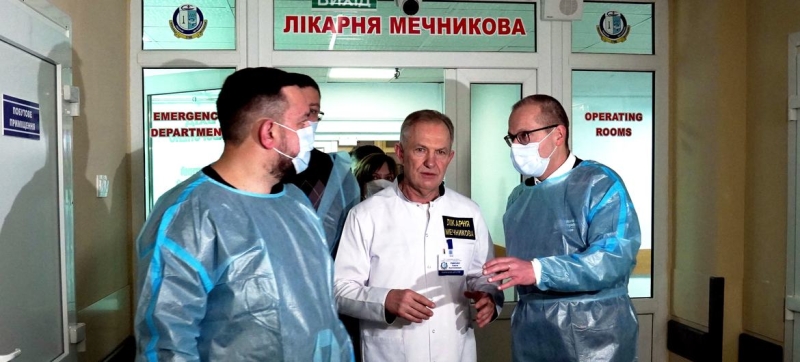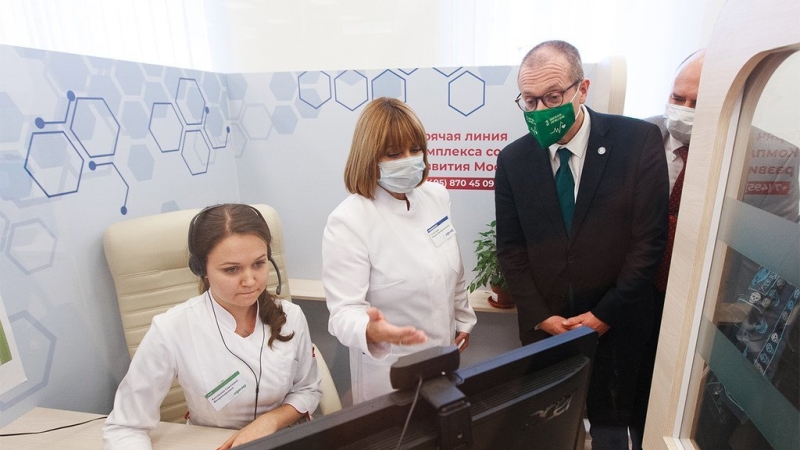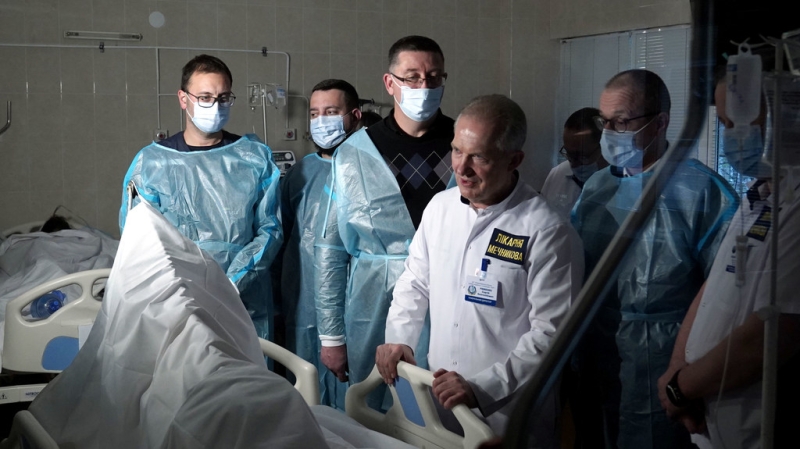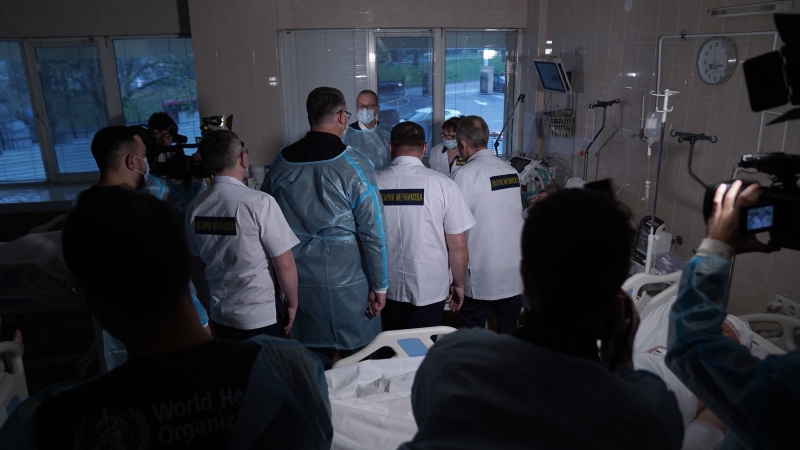
WHO Regional Director for Europe Hans Kluge (centre) during a visit to a hospital in Dnipropetrovsk, Ukraine. INTERVIEW | Hans Kluge: From working in a Siberian prison to heading WHO in Europe Health
Belgian Hans Kluge heads the World Health Organization (WHO) Regional Office for Europe, which covers a vast region from Greenland to Vladivostok. In an interview with UN Under-Secretary-General for Global Communications Melissa Fleming for the Awake at Night podcast, Kluge talks about his priorities and how the fight against tuberculosis in Siberia has shaped his professional and personal life.
Love and Potatoes
Hans, who grew up in the Catholic tradition, initially thought about the path of a missionary: he wanted to help those in need in different parts of the world. However, it turned out that then he would have to give up romantic relationships, and this was “too much” for the young man. So instead of missionary work, he ended up in the organization “Doctors Without Borders”, which gave him not only the opportunity to work in distant countries, but also a chance to meet his love, which is what eventually happened.
As an employee of Doctors Without Borders, the future WHO regional director worked in Africa and then in Russia. While working in Siberian prisons, where he was involved in the treatment and prevention of tuberculosis, the doctor fell in love with a local girl. “I didn’t know Russian then, and she didn’t know English. But love is a universal language,” he recalls.
The grandparents of his current wife, Ekaterina, with whom Kluge recently celebrated their 26th wedding anniversary, initially mistook him for a German spy. The Tomsk University student spent the summer staying with her relatives in a village near the prison and helping them with the housework. To earn the trust of the elderly people, the young doctor had to dig up their potatoes, and the result was worth the effort. After the end of his contract, under which Kluge worked in Siberia, he decided to stay in Russia to be near Ekaterina. So he got a job at the Moscow office of the WHO.
Finding a Common Language
Now Kluge speaks Russian well. Working in Siberian prisons has taught him the importance of cultural sensitivity and adaptability, as well as listening to people and finding common ground even in the most difficult circumstances.

WHO Regional Director for Europe Hans Kluge at the coronavirus centre in Moscow.
“Working side by side with people has given me an understanding of how important it is to build trust on the ground,” says the WHO regional chief.
He later worked in Myanmar for several years, and his career also took him to the DPRK, where he worked on tuberculosis treatment. “Many people ask me what it’s like to work in North Korea. And I tell them that people everywhere want the same thing – for their children to be healthy and have a better future,” the WHO representative shares.
Healthcare in a time of crisis
Kluge believes that it was his experience around the world that helped him cope with the challenges of the pandemic. He took over as WHO Regional Director for Europe in February 2020, just as COVID-19 was rapidly spreading around the world. “When I started, the region was relatively calm. But in the first weeks, everything changed. The pandemic and then the wars, including the conflict between Ukraine and Russia, became part of our agenda,” he recalls.
The conflict between Israel and Gaza also affects the work of the European office. “Israel is in our region, Gaza is in another region, which makes it even more difficult,” Kluge explained.
Regional Priorities
Speaking about his path to the position of regional director, Kluge emphasized that he was the first candidate for the post to visit all 53 countries in the region during his campaign. “I often run marathons, and this was the longest run of my life,” he recalls.

WHO Regional Director for Europe Hans Kluge during a visit to Dnipropetrovsk, Ukraine.
“My vision was that our office should be relevant to each of the 53 countries,” said Kluge. “This was quite a challenge, because we have countries with limited resources, but also some of the richest countries in the world. It is quite difficult to develop policies that are relevant to all 53.”
The four proposed priorities – mental health, immunization, behavioral and cultural research, and digital health – have once again proven their importance during the COVID-19 pandemic, the regional director emphasized.
Mental health and trust
Mental health is more pressing than ever: “One in five boys and three in five girls aged 15 in Europe feel lonely most or all of the time. Loneliness is an invisible killer.”
Kluge notes that the stigma surrounding mental disorders remains a barrier to care. However, he is confident that change is possible if the public is drawn to the issue of mental health. At the same time, simple steps such as home visits and helping neighbours can save lives.
According to Kluge, the pandemic has revealed both the strengths and vulnerabilities of health care systems. One of the key lessons was the recognition of the importance of basic health services, which were limited during the pandemic: “Cancer screening was suspended, leading to an increase in cases. Tuberculosis and HIV diagnostics were also at risk. We must be able to cope with crises and maintain the regular functioning of the health care system at the same time.”
Kluge pays special attention to the problem of trust in science. He stresses that false information about vaccination has cost many people their lives: “We are seeing an increase in the number of children who have not received a single dose of vaccine, the so-called ‘zero children’.”

WHO Regional Director for Europe Hans Kluge during a visit to Dnipropetrovsk, Ukraine.
However, this is not only a problem of spreading misinformation, but also a question of global solidarity, and rich countries should not store excess vaccines, creating shortages in the poorest regions, the WHO representative emphasized.
Vision of health and peace
But the most important thing, according to Kluge, is to ensure peace, without which there can be no health. “Peace is the most urgent medicine,” he said.
In addition, the dream and vision of the head of the WHO European Office is for the region to have a culture of health. This means that regardless of financial capabilities, sexual orientation, migrant status, everyone had the opportunity to lead a healthy lifestyle and receive health care.
“Health is a human right. “Everyone needs it,” Kluge emphasized.
